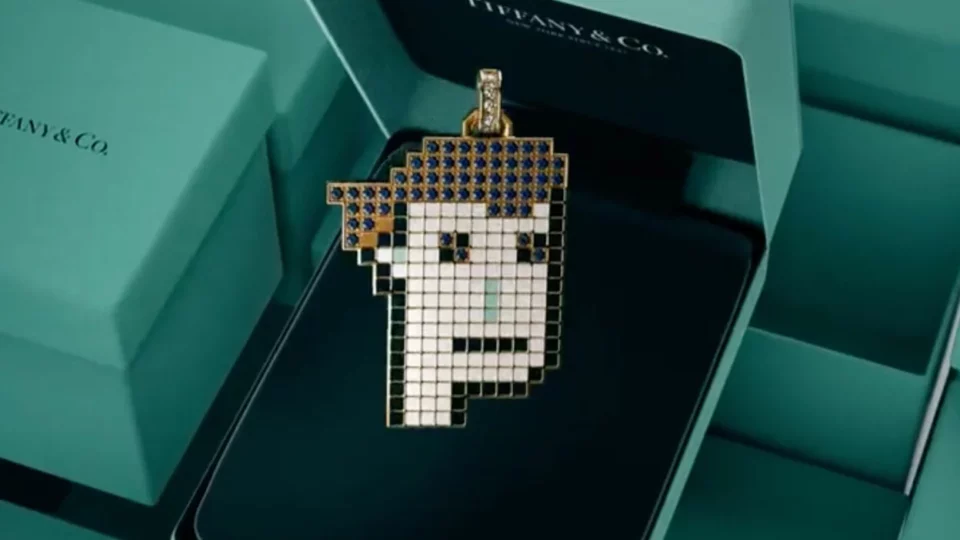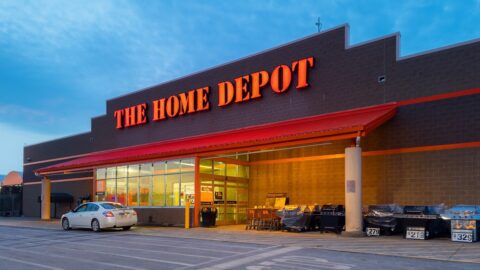Macroeconomic forces — from inflation to corporate layoffs and the unknown impacts of a recession — are creating uncertainty throughout the retail industry. But the luxury market sits in a unique position of growth: spending on luxury goods grew approximately 20% in 2022, according to Bain & Company, and it is likely to expand further through 2023.
The luxury market has a few key advantages that will likely safeguard it from financial turmoil. “Higher-income consumers are less impacted by inflation and, while aware of higher food, home and transportation costs, still have the funds to drive luxury sales and luxury growth,” said Marie Driscoll, Managing Director, Luxury and Retail at Coresight Research in an interview with Retail TouchPoints. In addition, because luxury goods are innately aspirational, even non-affluent consumers are adopting a mindset that encourages them to save more in order to invest in higher-quality goods.
As a result, the luxury market’s base expanded to approximately 400 million consumers in 2022 and is expected to reach 500 million by 2030, Bain & Company revealed — and the expansion goes far beyond the aspirational promise. Of note, consumers (especially Gen Z and young millennials) are “more knowledgeable and choosy” and are clamoring for unique products and experiences. These consumers are using digital channels and experiences to discover and engage with once out-of-reach luxury brands.
Many members of this young, savvy demographic are exchanging their dependence on fast-fashion destinations like SHEIN, choosing to invest in quality over quantity. It’s no surprise then that Gen Z and Gen Alpha’s spending power in the luxury market will grow 3X faster than other generations’ through 2030.
Leading-edge brands are responding by:
- Developing omnichannel strategies that engage and empower consumers, especially those in the coveted Chinese market;
- Embedding digital innovation that reflects the brand heritage and promise; and
- Testing new offerings and experiences such as digital collectibles and loyalty programs.
Will Luxury’s Biggest Market Rebound?
The return of travel and tourism in 2022 has indirectly benefitted the luxury market, and Driscoll believes this momentum will continue over the next year, with “the pendulum swinging to experiences over products in 2023.”
Luxury will benefit “from travel spending as it is an anchor souvenir of a good time, as we saw during summer 2022 when the U.S. visitors who flocked to Europe with a strong U.S. currency were avid luxury shoppers,” Driscoll added. Bain & Company data validate this perspective, noting that Europe managed to recover beyond the 2019 pre-COVID baseline due to the spike in tourism as well as solid local demand.
But although Europe, along with Korea and Southeast Asia, is “winning in terms of growth and potential,” Bain & Company added that “there will never be another China in terms of growth contribution to the industry.” This reality leads many experts to consider the long-term impact of China’s COVID lockdowns, which were referenced as detrimental in many corporate earnings reports. Despite these hardships, experts expect a rebound in local and international spending.
“China is on track to become the world’s largest personal luxury market by 2025,” said Mei Chen, Director of Fashion and Luxury North America, UK and Northern Europe – Globalization Business, Alibaba Group, in an interview with Retail TouchPoints. “This is largely being driven by a new generation of consumers who grew up in the internet age and are more knowledgeable and curious about luxury brands. With the reopening of China, many brands are feeling optimistic about the opportunity and growth. The luxury market in China is resilient and evolving rapidly, and this will shape the future of the entire sector.”
Luxury brands are attempting to capitalize on this opportunity by easing their once-stringent brand parameters and taking an “omnichannel approach” to reaching the affluent, and digitally savvy, Chinese consumer. Chen noted that the pandemic was a critical force in this shift.
“Previously, there has been resistance from luxury brands who were unsure of how to replicate the bespoke experience that consumers expect in-store through online channels,” Chen explained. “However, with new and emerging technologies – combined with its trend-setting, Gen Z and mobile-only population – China presents an unparalleled opportunity for luxury brands to elevate their online retail strategies and enhance consumer engagement to new heights.”
In China, digital behaviors are innately embedded into the purchase experience — one of the key reasons why China’s luxury consumers have been early adopters of cutting-edge tech experiences such as live shopping, 3D and AR capabilities and even AI-powered virtual assistants like Alibaba’s luxury virtual influencer, named TIMO.
At Alibaba’s recent 11.11 Global Shopping Festival, luxury brands took their online-to-offline omnichannel experience to the next level, Chen noted, “with a huge uptake in 3D shopping, augmented reality and virtual reality try-ons for products, digital avatars and digital collectables.” Chen added that many luxury brands, like Tommy Hilfiger, have been increasingly eager to test more emerging technologies in order to appeal to local audiences. For example, the brand “hired” Noah, Alibaba’s fashion virtual idol, to host a livestream in September 2022, and nearly quadrupled its daily gross merchandise value.
Luxury Brands Still Lagging in Creating Online Versions of In-Store Pampering
Although approximately 60% of luxury purchases are digitally influenced, BCG data indicates that brands in this sector are largely trailing in their innovation efforts. For its Luxury Outlook 2022 report, BCG revealed that the luxury industry placed seventh in terms of its overall innovativeness, and 65% of luxury consumers believe the industry is trailing others when it comes to digital. Moreover, nearly seven out of 10 people note that the digital experience brands provide simply does not measure up to their in-store experiences.
That hasn’t stopped some brands, like Burberry, Coach, Gucci and Tiffany, from testing new technologies to support their broader omnichannel vision. These brands know digital innovation is crucial: “Luxury brands must be culturally relevant in a brand-specific way,” said Driscoll. “They must be both at the center of culture and at the cutting-edge of culture. Luxury brands also must have a long-term focus, seeding strategies that create and enhance brand equity, and create tangible results over time.”
Now digital collectibles, virtual metaverse spaces and gaming communities are at the epicenter of this cultural relevance — one that also helps nurture customer relationships. Digital goods present a unique opportunity for brands to tap into their unique heritage and create “items” that fans collect and covet. In 2022 alone, nearly 30 brands released more than 60 digital collections with a total circulation of 40,000 pieces, all of which were exhibited at the Cloud Luxury City Digital Art Gallery within the Tmall Luxury Pavillion, Chen shared.
Many of these digital goods have physical counterparts, which creates a closed loop of customer engagement. For example, Tiffany sold out its 250 NFTiffs, with each NFT selling for approximately $50,000. In addition to the NFTs, purchasers also received a token and the ability to purchase an actual custom-made piece of jewelry.
Other luxury brands like Coach and Gucci are creating more immersive virtual environments to capture the time and attention of younger shoppers, mainly because 64% of consumers ages 18 to 34 believe that the metaverse facilitates the discovery of luxury brands. Coach has been especially focused on creating virtual reality and 3D-powered experiences that blend retail with entertainment. The brand launched a virtual storefront with Obsess this past year to bring the essence of its holiday campaign to life.
Even some of the more traditional high-end brands are venturing into the metaverse after seeing the success of their more modern counterparts. “Hermès and Saint Laurent recently filed trademark applications as preparation to enter [the metaverse],” Driscoll said. “The metaverse is a marketing tool, and access to consumers as traditional forms of marketing and digital marketing are disrupted.”
A significant yet still largely untapped opportunity in the metaverse is converging these experiences with loyalty initiatives, according to Chen. Swiss luxury watch brand Vacheron Constantin launched a 3D/Metaverse Pavilion on the Tmall app where customers could experience the brand and products in an immersive environment. “It was also one of the first brands to launch one-to-one livestreaming consultant services on Tmall Luxury Pavilion,” added Chen. “Members can book watches in advance and choose payment methods such as interest-free installments. Under certain conditions, members can enjoy an international warranty of up to eight years, as well as a variety of privileges.”
Embracing Innovation in an Era of Convergence
As digital’s influence on luxury sales continues to grow, brands need to look at technology as a tool that supports their strategy. To foster innovation within the well-established luxury organization, Driscoll recommended that creative directors work closely with innovation and tech teams and implement a more agile approach to ensure that digitization becomes an integral part of the brand’s overall marketing strategy. Driscoll advised brands to “move beyond digital being just a sales channel and seeing it as an opportunity to raise brand awareness, enhance brand equity and acquire new customers.”













